Linode

Linode: Cloud Infrastructure Provider
Linode offers virtual servers for hosting websites, applications, and services with a focus on simplicity, performance, and customer support
What is Linode?
Linode is a cloud infrastructure provider that has been providing virtual servers, commonly referred to as Linode instances, since its founding in 2003. Linode aims to empower developers and businesses by offering a straightforward and reliable cloud platform for hosting a wide range of applications and services. Key Features: Virtual Servers (Linode Instances): Linode provides virtual servers, known as Linode instances, which are scalable and configurable to suit various workloads. Users can choose from different plans based on their resource requirements. Data Centers: Linode operates multiple data centers across the globe, allowing users to deploy instances in locations that best serve their needs. This global presence helps improve performance and reduce latency. Choice of Linux Distributions: Users can choose from a variety of Linux distributions for their Linode instances, including Ubuntu, CentOS, Debian, and others. This flexibility allows developers to work with their preferred operating system. Block Storage and Object Storage: Linode offers block storage for additional scalable storage that can be attached to Linode instances. Object storage is also available for storing and retrieving large amounts of unstructured data. Networking Features: Linode provides features such as private networking, which allows secure communication between Linode instances within the same data center. Users can also configure firewalls and load balancers. API and CLI: Linode offers a comprehensive API that enables users to programmatically manage their infrastructure. The Linode CLI (Command Line Interface) allows users to interact with their Linode account from the command line. One-Click Apps and StackScripts: Users can deploy applications quickly using Linode's One-Click Apps, which simplify the process of setting up popular software stacks. StackScripts allow users to automate the deployment of custom configurations. Backups and Snapshots: Linode provides backup services and snapshot functionality, allowing users to create point-in-time copies of their Linode instances. This helps in data recovery and system restoration. Security Features: Linode incorporates security features such as DDoS protection, optional Two-Factor Authentication (2FA), and the ability to configure firewalls to control incoming and outgoing traffic. Community and Support: Linode has an active and vibrant community that shares knowledge, tutorials, and support. The company also provides customer support through tickets, forums, and live chat. Pricing Transparency: Linode adopts a transparent pricing model with no hidden fees. Users pay for the resources they consume, and Linode offers a variety of plans to cater to different use cases. Linode is well-suited for developers, small to medium-sized businesses, and enterprises looking for reliable and cost-effective cloud hosting solutions. Its focus on simplicity, performance, and community engagement has contributed to its popularity among a diverse user base.
Linode Features
Features
- Cloud servers (Linodes) with flexible configurations
- Global infrastructure with datacenters worldwide
- Intuitive control panel to manage Linodes
- Block storage for extra disk space and volume management
- NodeBalancers for load balancing across Linodes
- Managed services like backups and monitoring
- CLI tools and APIs for automation
- StackScripts for fast deployment of apps
- User-friendly guides and 24/7 customer support
Pricing
- Subscription-Based
- Pay-As-You-Go
Pros
Cons
Official Links
Reviews & Ratings
Login to ReviewThe Best Linode Alternatives
Top Online Services and Cloud Computing and other similar apps like Linode
Here are some alternatives to Linode:
Suggest an alternative ❐Amazon Web Services

Microsoft Azure

DigitalOcean

Hetzner

Google Cloud Platform

Vercel

OpenStack

Amazon Elastic Compute Cloud
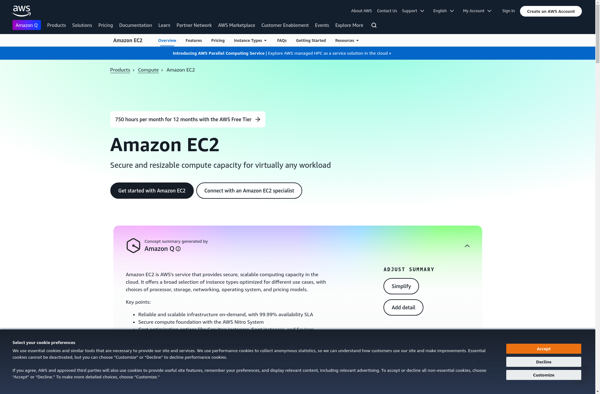
GoDaddy

Amazon Lightsail

OnWorks

Heroku

Hostinger

Bluehost

Vultr

IranServer
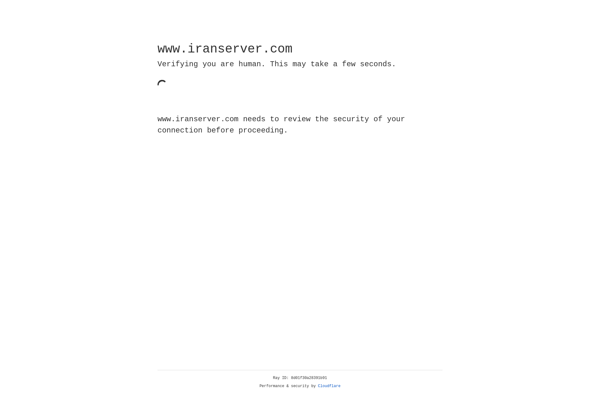
Greenhost

Exoscale

Vmango

MicroCloud

ServerHub

Kamatera

Rad Web Hosting

Sandstorm
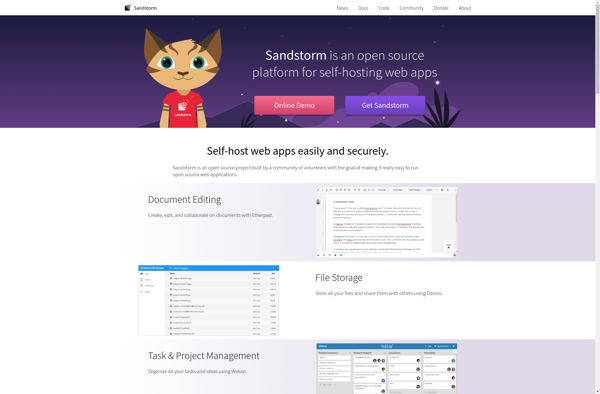
HostGator

RMJ Cloud
VPSie

Google Compute Engine

Website Free Host

Scaleway

Qovery

Koyeb

BuyVM

WebFaction

UpCloud

Storj

VPSDime

EuroVPS

Cloudways

DedicatedCore

Rackspace

Dreamhost

RoseHosting.com

Clouding.io

SpinUp
CloudVPS
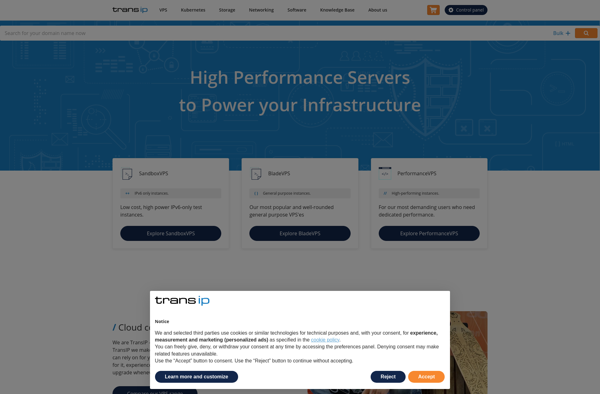
HostnExtra

Virtkick
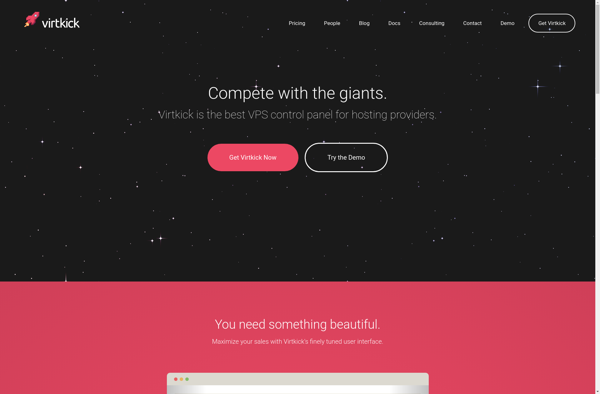
PlanetHoster

Slicify
KeepSec Technologies

Antsle

Time4VPS

FastComet

Dediserve

Tranquillity

LetsCloud

A2 Hosting

InMotion Hosting

VirMach

DomainRacer

CloudSigma
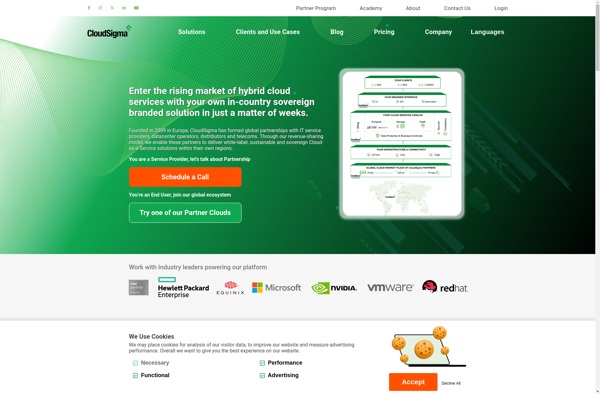
V2 Cloud

HostUp

RamNode

Ikoula

MicroHost

DataCell
Gridscale

Bahnhof

TransIP

VIP Web Hosts
EvergreenTech.io Web Design

Liquid Web

Idealstack
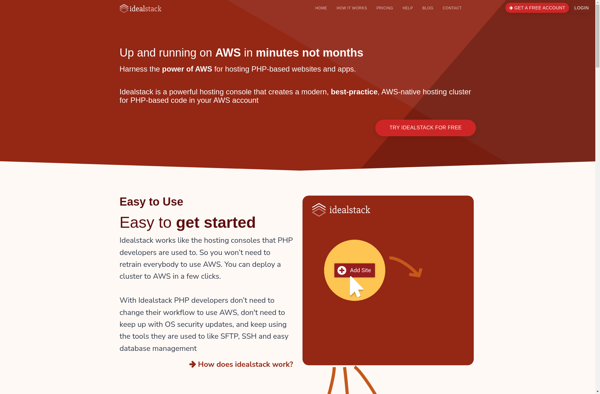
Hyper Host

Kinsami
ElasticHosts
LunaNode
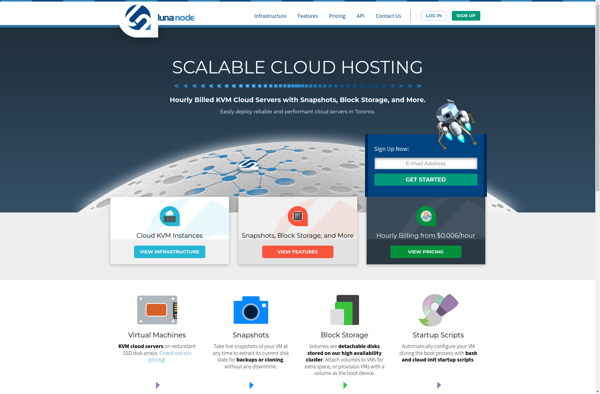
RuneHost
Datarealm
Hyper.sh
Portal Cloud

Aulerion
FSTServers
Hybrid Web Hosting

Go4hosting

Citycloud

Tsohost

Onlive Server

Ventureer
MediaSecure

GetClouder
Flexihost

Sweden Dedicated

JiWebHosting

Webhosting1st

M3O
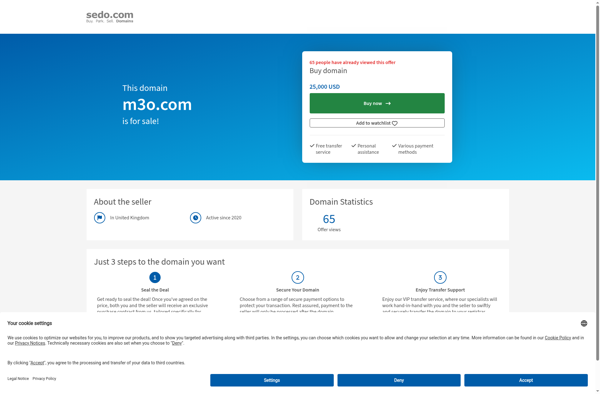
Joyent

Prometeus

GoGrid

Coinhost.io Web Services

Hostingwalk

GB Network Solutions

Serverworks

SolVPS

AtomDeploy
Private Layer

DealonCloud

A Small Orange

Cariibou
ProxyBite

Q Blocks

Cloudscale.ch

HostUS
